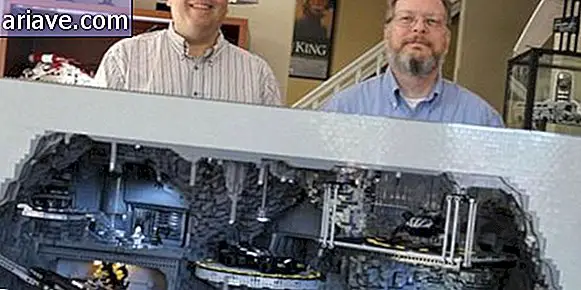Mu: the continent that never existed but could be the origin of everything
Have you noticed how the Maya and the Egyptians built similar pyramids several centuries ago without even contacting each other? In ancient cultures, there are many examples of similarities between peoples who did not know each other, whether through religion, architecture or customs.
If you think we are going for a line from the "Alien of the Past", you are correct: to justify so many distinct peoples with various similarities, some people have suggested the existence of a lost continent. No, we don't talk about Atlantis, but Mu!
Hindus, Sumerians, Greeks, and Hebrews had their myths related to a great flood. The Egyptians and the inhabitants of Easter Island had almost identical names for the Sun: Ra and Ra'a. Things like this led people to invent wild theories to explain such a phenomenon. And in 1896, archaeologist Augustus Le Plongeon came up with the idea of the Mu continent from which all human beings would have originated.

The continent that never existed
As you might imagine, if you studied history, Mu never existed. From the beginning, the researchers did not agree with its supposed existence, even with Plongeon swearing that Mu had sunk into the Atlantic Ocean thousands of years ago. So much so that the name Mu would mean "submerged earth after disaster".
Some ancient astronaut theorists believe Mu would be inhabited by a highly developed civilization that could foresee the catastrophe and spread across the planet. Mut, the goddess of the gods in Egyptian mythology, would have been one of those emigrants, who would include the peoples who inhabited Central America and later the entire planet.
When Plongeon died in 1908, writer James Churchward took up his post to reveal the lost continent to the world. He concentrated his research on India, where he would have found tablets with very old writings that very few people in the world could read - he would be one, of course. The scriptures would refer to the place where the human being had arisen.

Myth or reality?
Already researcher William Niven would have found 2, 500 fragments of textual tablets in Mexico that would support Churchward's theories. This lost civilization would have prospered 12, 000 to 50, 000 years ago, but contrary to Plongeon's claim, Churchward believes Mu would be in the Pacific Ocean.
This would explain better, for example, how remnants of this civilization would have come to Hawaii or Easter Island, for example, as it would practically encompass these two famous islands. At its peak, over 64 million people would have lived in Mu! But a gigantic volcanic explosion would have sunk the continent.
The idea of a lost continent, like Mu, still finds strength in people who dream of a civilization that gave birth to everything on the planet. However, many scientists explain that the similarities between different cultures have logical explanations and that the idea of an entire continent being sunk is very fanciful. It will be?












